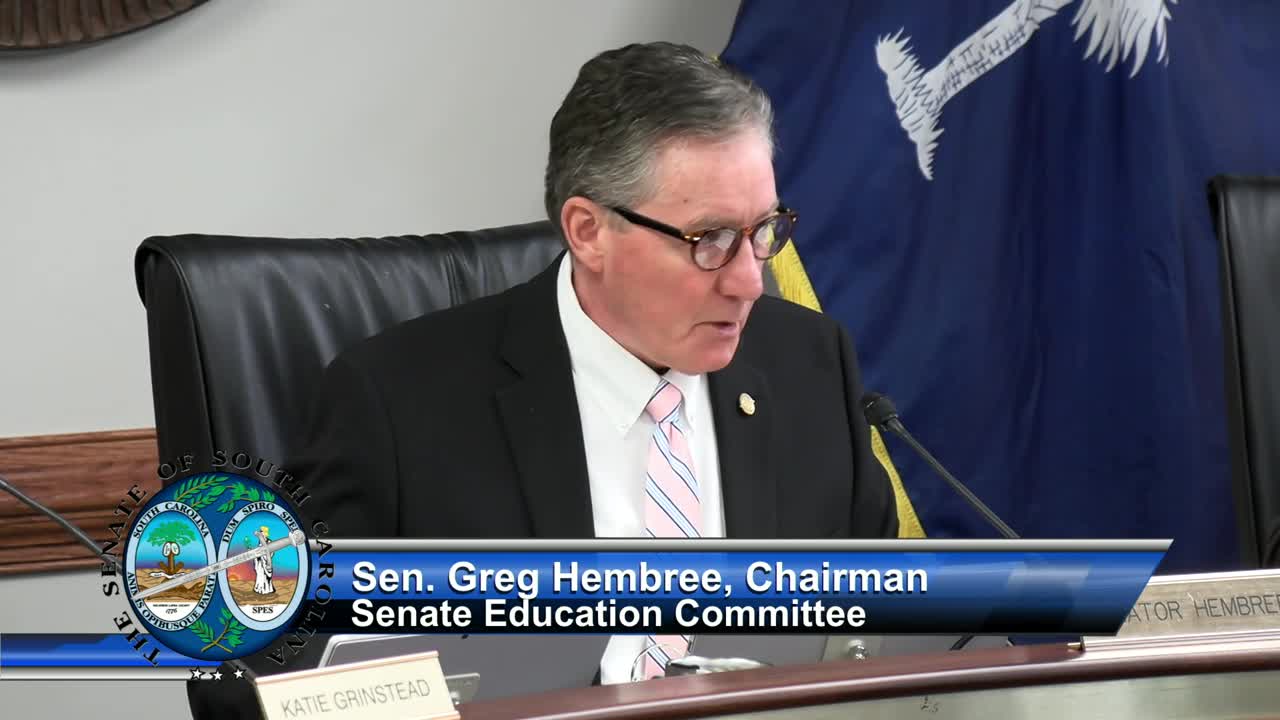Committee codifies community eligibility requirements, bars meal penalties and requires districts to identify students in poverty
Get AI-powered insights, summaries, and transcripts
Subscribe
Summary
The Senate Education Committee voted to codify a long‑standing proviso to expand access to free breakfast and lunch, require districts to document CEP participation or financial hardship, and ban penalties against students with meal debt.
The Senate Education Committee voted to codify a long‑standing proviso on school breakfast and lunch access that emphasizes community eligibility (CEP), requires districts to identify students living in poverty, and prohibits several punitive responses to meal debt.
Under the proposal staff presented, districts qualifying for CEP must adopt a resolution indicating their level of participation. Districts that cannot participate because of a financial hardship must adopt a resolution stating that inability and document the hardship. The bill requires districts to ensure parents and guardians receive the necessary applications and instructions to apply for free and reduced meals.
The measure would prohibit districts from publicly identifying or otherwise penalizing students who are unable to pay for a meal or who have accrued meal debt; examples spelled out in committee include withholding diplomas, barring participation in graduation ceremonies, and discarding meals after serving them. Committee members noted the change reflects widely used federal programs, and staff reminded the panel that the program is federally funded in its current form.
The committee adopted a staff amendment that suspends the bill’s requirements if the CEP federal provisions are suspended or discontinued. The committee then approved a motion to give the bill a favorable report to the full Senate by voice vote.
Supporters described the policy as a corrective to practices in which students were publicly shamed, disciplined, or denied graduation due to meal debt. Committee members also noted that expanded cross‑matching with federal benefit lists has increased districts’ ability to identify qualifying students and enroll them in free meal programs.
